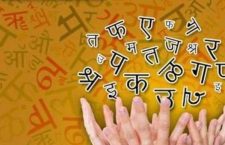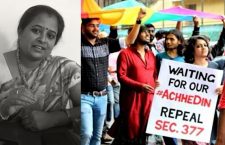On the day that the Bengaluru police takes action on the linkages between the murders of Gauri Lankesh and M.M. Kalburgi, the Bundelkhand press speaks of the dangers of reporting, remembering Gauri, with a dangerous sense of déjà vu
Gauri Lankesh, a bold and fearless journalist from Bangalore, who ran a weekly, regional news magazine Gauri Lankesh Patrika, which was known for its critique of the politics of majoritarianism and intolerance, was shot dead in her house on September 5 last year. The murder had a chilling effect on the freedom of the press nationally at least for a while; mainstream media memory on the case has been short-term otherwise.
In Bundelkhand, the fact of political and business muscle being a very real danger to one’s work is something that many journalists and reporters live in constant fear of. Rural press active in U.P.’s hinterlands have good reason to be mindful of Lankesh’s death hence.
Mahoba resident Rasheed Qureshi, who works as a reporter at Zee India TV, speaks of Lankesh and the dangers surrounding news reports. “She was an excellent journalist who was fearless in her reporting and writing. Although I am nothing compared to her stature as a journalist, after she was killed, her death has left me with an eerie and unsettling feeling. Sometimes, we have to go out in the wee hours of the night to report on an event. There are so many mafias and gangsters operating in this area that we often have to cover controversial news. But if we report on their illicit activities, I fear that they will take it out on us the same way it was done to Gauri Lankesh.”
It is no secret that the Bundelkhand region, where the district of Mahoba is situated, is overrun by the mining mafia – who have both the local police as well as the press in their pockets. The journalists of Bundelkhand are no match for the mighty mafia, who seem willing to eliminate anyone who comes in their way. In fact, a journalist called Sandeep Sharma, who was investigating the sand mafia in MP, was recently overrun by a truck under mysterious circumstances. His death not only came as a shock but also as a threat to anyone who dared to take on the powerful. Those whose lives are spared are slapped with false lawsuits and criminal charges and harassed by the police, which, too, is in cahoots with the mafia. For instance, a reporter and his cameraman from Banda district were charged with criminal breach of trust and detained by the police for simply interviewing the village pradhan about the lack of development in the village and its nexus with the illegal mining of sand and stone in the region.
As for the others, their silence is simply bought for money. An established system of payments exists to coerce the local press into remaining silent, with the money coming in from various sources like the police, the transport providers that shuttle the illegally mined sand, local mining officials or directly from the mafia.
Khabar Lahariya reporter Geeta, talks about her apprehensions as a journalist operating in the district of Banda. “When I cover big, controversial stories, especially those regarding the mafias, I have to think twice before doing it. We often get pressured and threatened to not pursue such stories and not report on them. But we must soldier on despite these things.”

